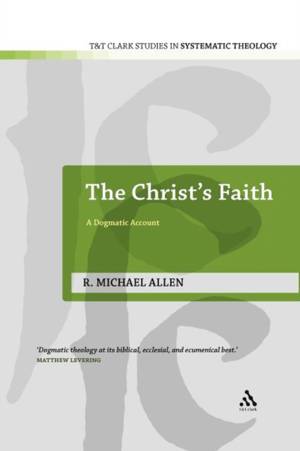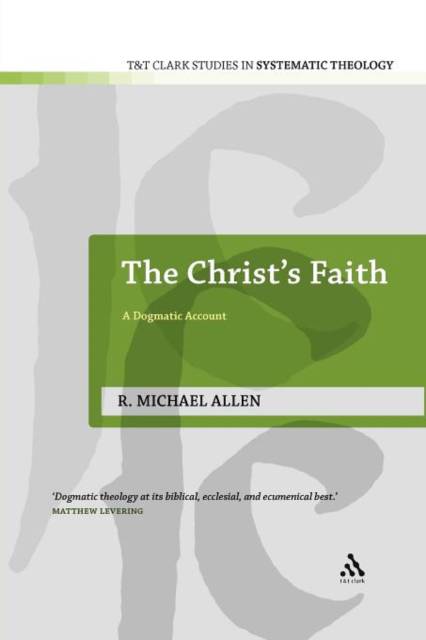
- Retrait gratuit dans votre magasin Club
- 7.000.000 titres dans notre catalogue
- Payer en toute sécurité
- Toujours un magasin près de chez vous
- Retrait gratuit dans votre magasin Club
- 7.000.000 titres dans notre catalogue
- Payer en toute sécurité
- Toujours un magasin près de chez vous
Description
The Christ's Faith coheres with orthodox Christology and Reformation soteriology, and needs to be affirmed to properly confirm the true humanity of the incarnate Son. Without addressing the interpretation of the Pauline phrase pistis christou, this study offers a theological rationale for an exegetical possibility and enriches a dogmatic account of the humanity of the Christ.
The coherence of the Christ's faith is shown in two ways. First, the objection of Thomas Aquinas is refuted by demonstrating that faith is fitting for the incarnate Son. Second, a theological ontology is offered which affirms divine perfection and transcendence in qualitative fashion, undergirding a Chalcedonian and Reformed Christology. Thus, the humanity of the Christ may be construed as a fallen human nature assumed by the person of the Word and sanctified by the Holy Spirit.
The dogmatic location of The Christ's Faith is sketched by suggesting its (potential) function within three influential theological systems: Thomas Aquinas, federal theology, and Karl Barth. Furthermore, the soteriological role of the doctrine is demonstrated by showing the theological necessity of faith for valid obedience before God.
Spécifications
Parties prenantes
- Auteur(s) :
- Editeur:
Contenu
- Nombre de pages :
- 256
- Langue:
- Anglais
- Collection :
- Tome:
- n° 2
Caractéristiques
- EAN:
- 9780567130945
- Date de parution :
- 05-01-12
- Format:
- Livre broché
- Format numérique:
- Trade paperback (VS)
- Dimensions :
- 156 mm x 234 mm
- Poids :
- 362 g







